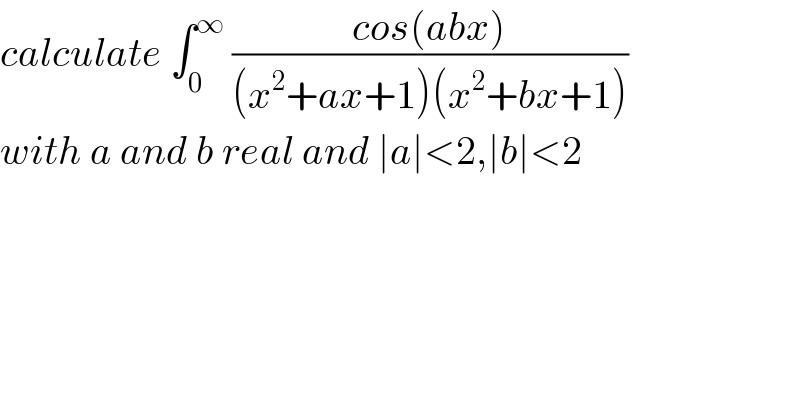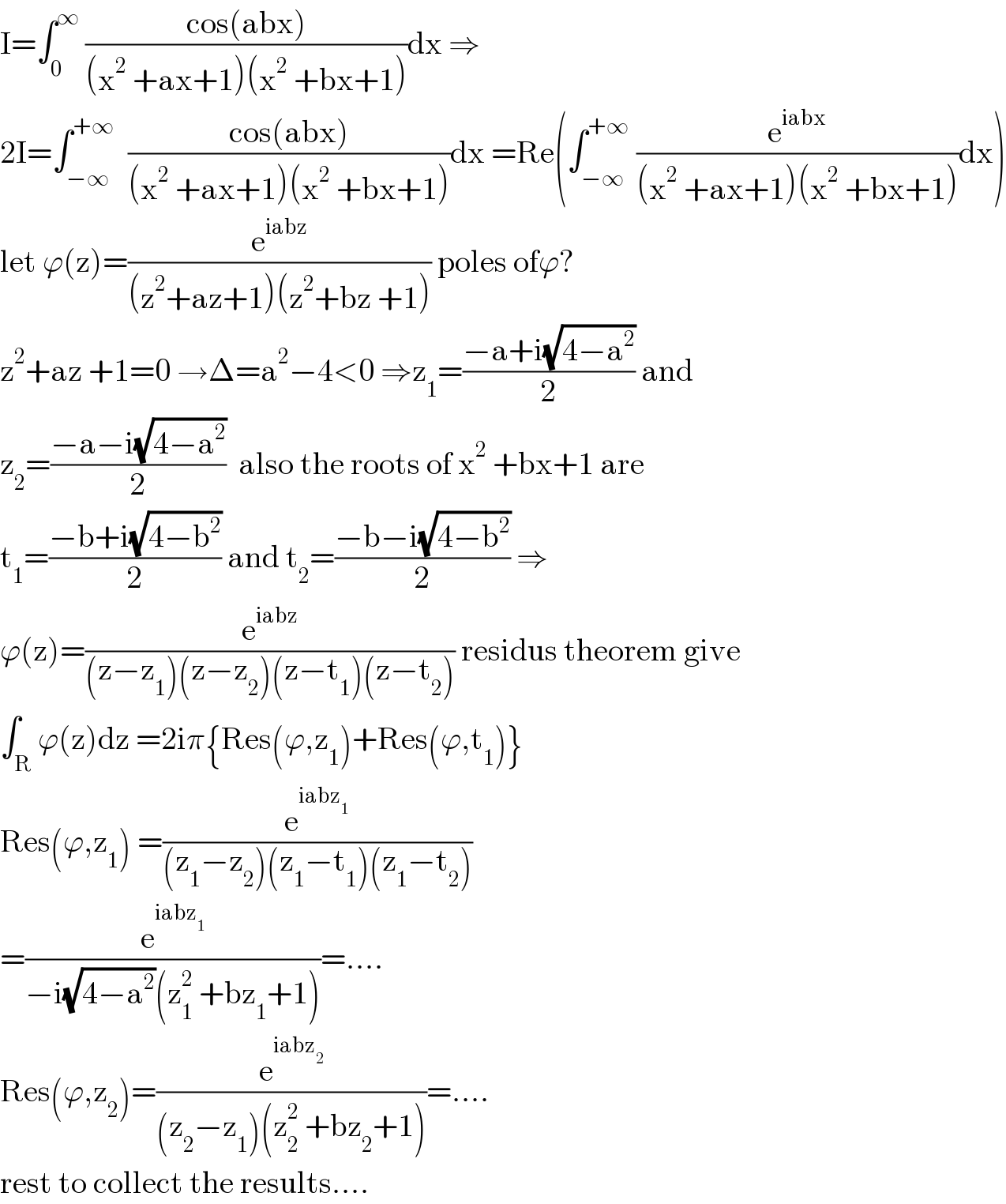
Question and Answers Forum
Question Number 130387 by Bird last updated on 25/Jan/21

Commented by mathmax by abdo last updated on 25/Jan/21

Commented by mathmax by abdo last updated on 25/Jan/21

| ||
Question and Answers Forum | ||
Question Number 130387 by Bird last updated on 25/Jan/21 | ||
 | ||
Commented by mathmax by abdo last updated on 25/Jan/21 | ||
 | ||
Commented by mathmax by abdo last updated on 25/Jan/21 | ||
 | ||